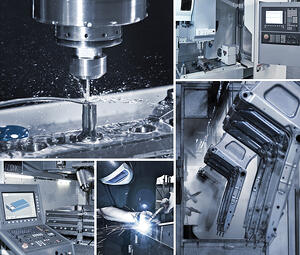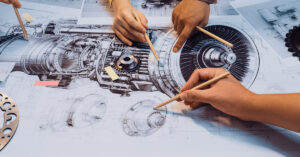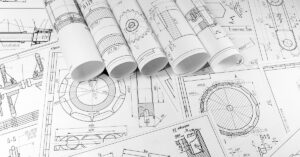
All over the country, there are pockets of manufacturing still alive and well. From plastics to metals and everything in between, there is still life in the manufacturing industry. With some many shops of different sizes, specialties and cultures, it is important to identify key factors that contribute to a great precision machine shop.
Not all machine shops are created equal. Many buyers and sourcing personnel focus too much on price without considering the big picture. Quality, Delivery and Cost are all important and to achieve them the makeup of the business matters greatly.
Buyers in high tech industries such as Medical, Semiconductor, Defense, Printing and others would be prudent to look at the company as a whole to see how it operates before making any important purchasing decisions. Let’s analyze some important factors that one should consider when picking a machine shop for a project.
1. Financial Stability
If I’ve heard it once I’ve heard it a thousand times. Machine shops are notorious for sacrificing their margin to get a job. When they get the job, they can finally pay the bills this month. This business strategy is not only unhealthy for machine shop, but also for the customer. OEMs should not use a supplier that is barely keeping their head above water. In the long run, it will prove detrimental for the partnership. One should strive to work with suppliers that are financially stable. They will be able to make smart business decisions for the company as well as the customers. With financial stability in place, other facets of the business are free to run smoothly and, in the end, the customer wins.
2. Machine Technology
Machine tool makers spend millions of R&D every year to help us machine shops in our quest to decrease cycle time and setup. Machines today are more efficient, easier to operate and host a wide variety of features not seen in years past. Good shops will have a great selection of very capable machines. They will invest and reinvest year over year to ensure their technology meets the needs of the customer. There are more than enough resources in the world for a good shop to get educated on what to purchase for their factory. A shop with great tools and capability is certainly an indicator that you’ve found an experienced supplier.
3. Manufacturing Systems
Taking a piece of metal and turning it into usable parts is no easy task. It must go through sourcing, engineering, programming, machining, inspection and shipping. It is critical that the shop has a robust ERP or MRP to handle the daily workflow of parts. A good manufacturing system will help the company to optimize flow of parts and pass the savings onto the customer. It seems like common sense, but there are many shops out there with a homegrown system or hodgepodge way of doing things that is simply not consistent with smart manufacturing practices.
4. Skilled Operators and Engineers
5. Customer Diversity
Remember, precision machining is a different animal than its simple counterparts. Good precision machine shops will have similar traits but there are critical factors that will separate them. Having financial stability, skilled team members, customer diversity, great machinery and robust systems are keys to success for these suppliers. To find out more about PEKO’s precision machining capabilities, contact our team today.








